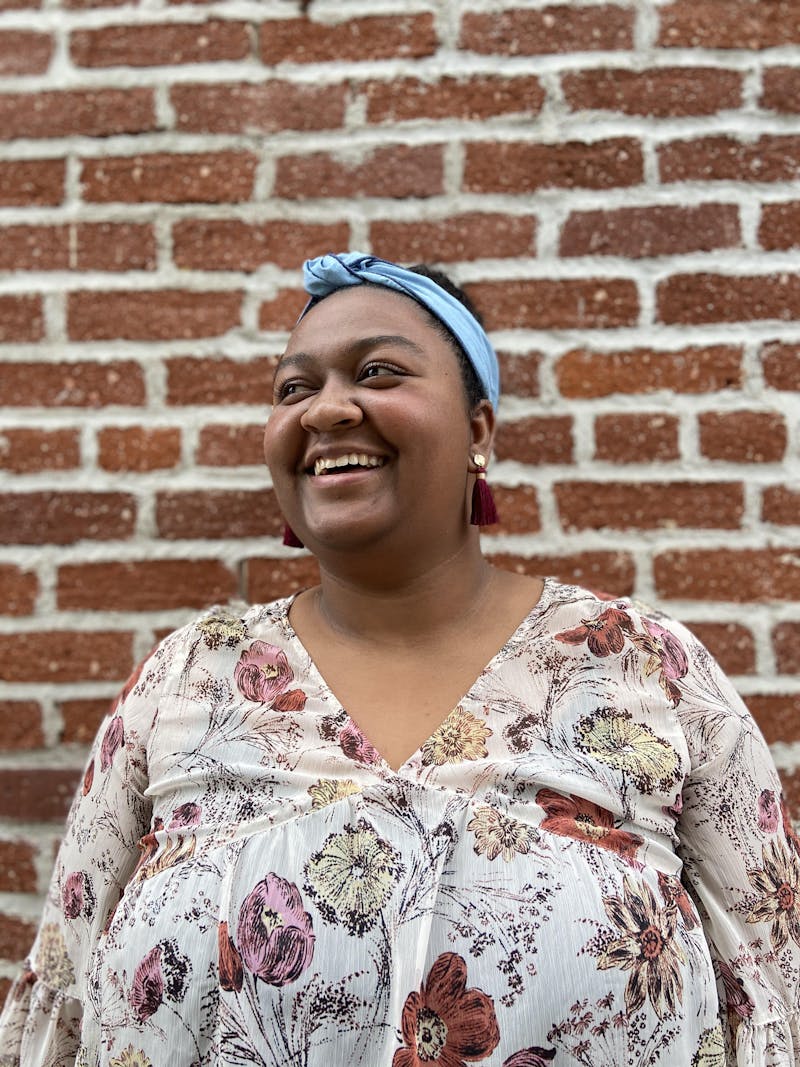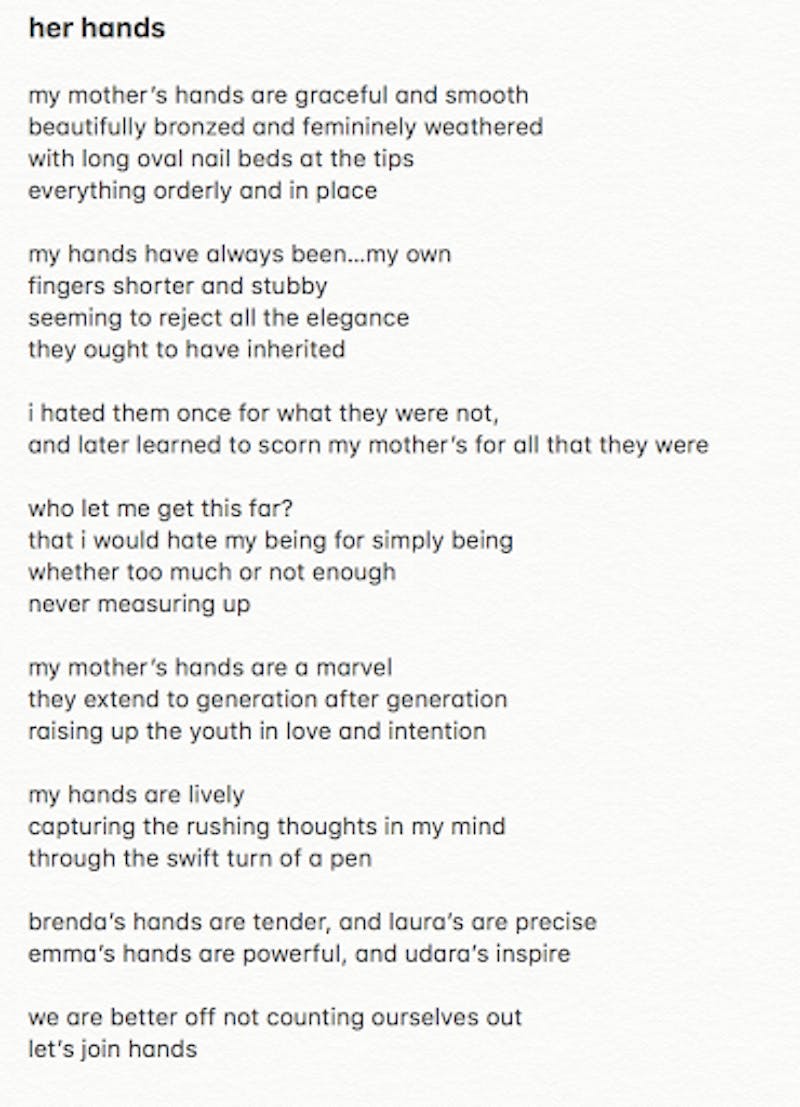
What is justice through poetry and how did you begin?
To be honest, I started writing poetry more for a class project than for justice itself. A friend and I were in a meeting about a year and a half ago where some racist remarks were made and writing came about as a way for me to cope with what I was feeling afterwards. I've always been a creative person, so I'd written songs before, but never really looked into poetry. The class I was in at the time focused on race in the United States, and we had to do a creative project later on in the semester, so part of me was glad I could get it out of the way early, haha! On a more serious note though, I found myself enjoying writing poetry more and more. I just kept writing about my experiences, so thinking about the term "justice through poetry" is interesting for me. I feel like I have found a lot of personal liberation in writing. Being able to speak about things that plagued me for so long is really freeing. That being said, I think my view of poetry is a way for people to see themselves. The truth of the matter is that racist things will still happen whether or not poetry is written about it, but poems can be a refuge for those beaten down by racism, a place for solidarity and communal grief. I also think poetry can be a place for those on the other end of things, a tool for people to see that they might be perpetuating racist ideas in their words or actions. All that to say, I think poetry is a way to reflect to ourselves what we have in this moment, and it can steer us in the direction we need to go. It is a beautiful first step, but it cannot be our only step. We have to continue on towards tangible change.
How does your identity show up in your poems?
I grew up in Ventura County, and while I loved it, there were many times that being the only person of color in a situation was difficult. My mom is Black and my dad is Sri Lankan, so I'm mixed. Furthermore, being raised in this area sometimes feels like it comes with a culture of its own. Many of my poems come from a place of trying to balance mixed identity along with my upbringing here. Other poems come from small encounters with people, or from revelations I have about my own racial identity. I also touch on things like colorism, and internalized racism in my pieces, and this past year I wrote a lot more about what it's like being a member of the church as we see racial injustice unfold. It has been tough, but being able to process all that's happened through poetry has been a blessing.
Do you see the impact of your poem on others?
In terms of the impact my poetry has had, I think I would need to ask the people who have read it! All jokes aside, I started writing poetry just for me. I would share my pieces with friends and family, and I even got published in my school's literary journal, but I kept it to myself for the most part. When George Floyd died, it felt like a punch in the gut. I had always kept my social media pretty apolitical up to that point, but when he was killed, I began sharing my views and my poetry more openly. I wanted people to see that his death was not just some freak encounter, but that racism was routinely affecting people's everyday lives as well as taking their lives. I've had people reach out to me and thank me for my pieces, whether they were Black or a person of color and felt seen, or they weren't and they felt they learned something. Those messages always make me smile because I like to see my work as just me sharing my thoughts for my community, and so seeing someone resonate with or appreciate what I have to say is rewarding.
How has COVID impacted your work and your view on the world?
COVID has shaped so much of the life I'm living right now that it's hard to measure. I've connected with a bunch of new people online because of the fact that we're all stuck at home, so that has been really cool to see. There was a decent period of time where I wasn't writing anything at all, just keeping my head down and trying to make it through Zoom classes and other online responsibilities. Thankfully, when I got out of that funk, I was able to spend the extra downtime from COVID on writing. If the pandemic hadn't happened, I might have been sharing these pieces in person instead of solely online, but who knows. If anything, it's shown me just how much of a tool social media can be, but also how valuable in person community is. The last year has been rife with unrest and inequities, and being separated from our normal communities has made processing that even harder. Especially now, as Anti-Asian racism is on the rise, I wish we could be in closer proximity to one another. The Black and Asian communities have had their issues in the past, but now is the time we need to come together the most. There is power in learning from one another, and supporting one another. As a mixed person who has experienced racism on both fronts of my ethnic identity, I can say that it is not each other we ought to be fighting. COVID has given us plenty of time to see how racism and white supremacy affects different groups. We have to confront those issues together if we want to be successful.
